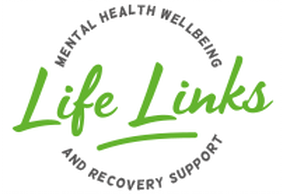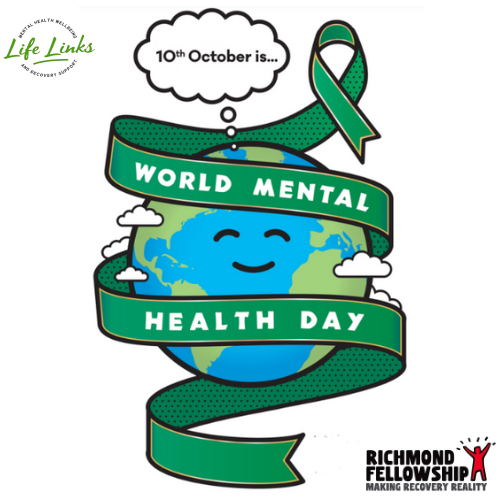Written By Ellie
and Brooke
What is World Mental Health Day?
Every year, World Mental Health Day falls on 10th October, this day was first celebrated in 1992 and it continues to be celebrated each year, alongside other mental health awareness days and months. The day aims to raise awareness of mental health experiences worldwide and offers the opportunity to talk openly about individual experiences. Further, the day highlights the work that needs to be done in order to ensure that individuals are accessing the support that is available to them.
Why is it important to celebrate World Mental Health Day?
World Mental Health Day is important to celebrate in order to raise awareness and to reduce the stigma which is attached. Raising awareness and reducing stigma is important, because often the stigma relating to mental health can prevent people reaching out and accessing support. World Mental Health Day is also an opportunity to highlight and support new innovations that work towards making mental health support accessible for all!
Across the globe, many events have been taking place to support World Mental Health Day 2022, including:
- The launch of counselling apps, especially for LGBTQI+ individuals
- International conferences have been held
- Arts and theatre events
- Mental health workshops, awareness drives and group discussions have all taken place
- Organisation of suicide prevention campaigns
Facts and Figures of Mental Health in the UK and Worldwide:
- Major depression is thought to be the second leading cause of disability worldwide and a major contributor to the burden of suicide and ischemic heart disease.
- In 2013, there were 8.2 million cases of anxiety in the UK
- In 2013, there were almost 4 million cases of mood disorders, including bipolar disorder, in the UK.
- Depression is the predominant mental health problem worldwide, followed by anxiety, schizophrenia and bipolar disorder.
- 36% of all adults who reported stress in the previous year cited either their own or a friend/relative’s long-term health condition as a factor. This rose to 44% of adults over 55.
- 49% of 18-24-year-olds who have experienced high levels of stress felt that comparing themselves to others was a source of stress, which was higher than in any of the older age groups.
- 36% of women who felt high levels of stress-related this to their comfort with their appearance and body image, compared to 23% of men.
- Housing worries are a key source of stress for younger people (32% of 18-24-year-olds cited it as a source of stress in the past year). This is less so for older people (22% for 45-54-year-olds and just 7% for over 55s).
- Younger people have higher stress related to the pressure to succeed. 60% of 18-24-year-olds and 41% of 25-34-year-olds cited this, compared to 17% of 45-54s and 6% of over 55s).
- 51% of adults who felt stressed reported feeling depressed, and 61% reported feeling anxious.
- Of the people who said they had felt stress at some point in their lives, 16% had self-harmed, and 32% said they had had suicidal thoughts and feelings.
- 37% of adults who reported feeling stressed reported feeling lonely as a result.
All facts and figures pulled from the Mental Health Foundation
What Leicester Life Links did to celebrate and support World Mental Health Day 2022
Leicester Life Links did a number of things to celebrate the day including:
We hosted a coffee morning at our office in Leicester city centre, during this time people were able to drop into our office for a chat, a hot drink and a sweet treat!
Additionally, we hosted a drop in morning at Wigston Library in Leicestershire. Again, this was a safe space for people to drop in to have a chat with a member of staff about their mental health and ways that Life Links can support. Not only did individuals drop by but we also spoke to different professionals, resulting in new partnerships being developed!
What organisations can help?
Mental Health Charities
Please click the below link to find a range of organisations for mental health ranging from anxiety-related organisations, self-harm and injury support and helplines.
Leicester, Leicestershire and Rutland Crisis Cafes
Crisis Cafes help to support people who need immediate mental health help. The cafes are drop in centres for anyone to come and talk to us about their mental health with no appointment needed. They have supportive, trained staff who can listen and provide the practical support you need. Please click the link here to see the Crisis Cafes in Leicester, Leicestershire and Rutland.
Mental Health Apps
Mindshift CBT – This app uses CBT to help you learn to relaxation and mindfulness skills in addition to ways to change how you think and decrease anxiety.
FearTools – Anxiety Aid – This is an evidence-based app designed to help you combat anxiety, aiding you on your road to recovery.
Worry Tree – Helps to record, manage and problem solve your worries and anxiety based on CBT techniques.
Catch It – Helps people to understand their moods through use of an ongoing diary.
WRAP – Wellness Recovery Action Plan helps to create the life and wellness you want.
Mood Tools – Designed to help you combat depression and alleviate your negative moods, aiding in your road to recovery.
Calm Harm – Provides immediate techniques to help break the cycle of self-harm behaviours and explore underlying trigger factors.
DistrACT – Provides quick, easy and discreet access to general health information and advise about self-harm.
Sleepful – Provides tools and guidance to overcome insomnia.
Staying Alive – A suicide prevention resource with useful information to help you stay safe. If you are having thoughts of suicide or are concerned about someone else this could be a helpful resource.
What’s Up – An evidence-based app based on CBT and ACT (Acceptance Commitment Therapy), this uses methods to help cope with anxiety, anger, stress, depression and more.
Take a Break – Relaxing meditations to combat stress





